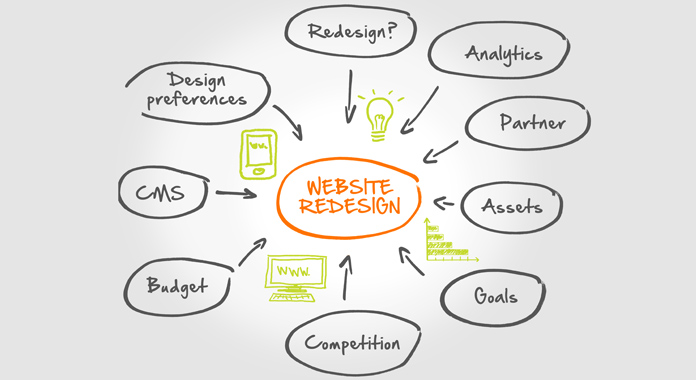In its short (almost) 30-year history, the internet has had a transformational effect on all
aspects of modern life – but perhaps nowhere more so than in the world of business. These days, companies big and small rely on the web and connected technologies more than ever for everything from their communications to data transfer and storage.
The importance of a company website
It’s estimated that around 83% of all business-to-business (B2B) commerce starts online typically with a Google search for a specific product or service. If your company doesn’t have a website, you’re potentially missing out on gaining new business and expanding your customer base.
However, while being online is important, there’s little point in having a lackluster site that
doesn’t perform for you. Here are a few tips for planning a successful website roll-out and
maximizing your online potential:
Have clear goals and define your purpose:
These days, there are at least eight different types of websites commonly operating online – everything from full e-commerce stores to showcase portfolio sites. Before starting your project, it’s crucially important you have a clear definition of what you want to achieve from your website and how you’re going to reach those goals.
Decide on a budget:
Whether you choose to go it alone with the production of your site or decide to work with a web design agency, you will need to have a clear idea of your available budget. Indeed, cost will likely be the primary influencing factor in the DIY/agency debate. Make sure you have a defined budget in mind – and always allow for a 10-20% contingency fund for unexpected costs.
Define your content strategy:
No matter what type of site you intend to run, content is king when it comes to being online and will be the primary reason people come to your site.
Define what your primary content is going to be – whether that be blog posts, pictures, video, etc and also work out how often you’ll produce new material. Search engines – and, in particular, Google – love fresh, relevant content and will prioritize your site higher as a result. If you struggle with writing, perhaps consider hiring a professional, specialist web writer to help. Text is massively important online and is one of the main ways search engines come to understand what your site is about.
Think of structure and create a sitemap:
All websites feature a branching menu structure similar to a family tree with tiered levels of content. Planning your navigation and page configuration from the start can help focus your mind on the most important areas and save you from going off on a tangent.
Don’t forget online security:
Website security is the greatest threat faced by online ventures – so ignore it at your peril. A hacked website could cause irreparable damage to
your company – both reputation-wise and financially – so be sure to, at minimum, install a security package on your site. Better yet, consider partnering with an internet security expert to provide bulletproof protection on your site, and remember also to take regular back-ups of your content.
Before going live, perform thorough testing:
There’s nothing worse than visiting a site only to find broken 404 links, missing images, or poorly-written text filled with typos. Before putting your site live, comprehensively check all pages for errors and thoroughly test that
everything is working as you expected.
Follow Technoroll for more articles.





